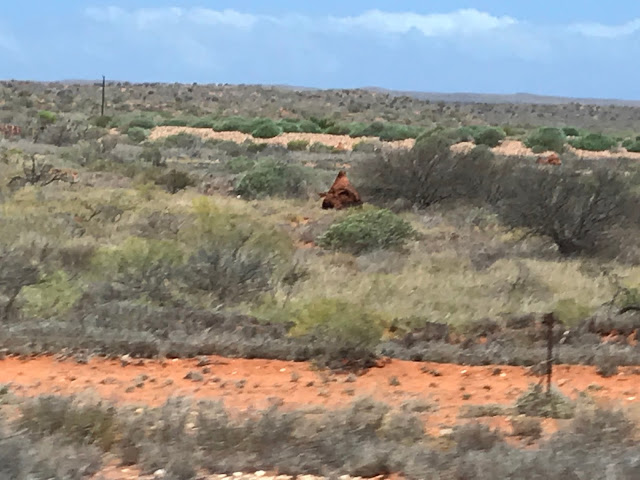One’s destination is never a place, but
always a new way of seeing things.
~ Henry Miller
Feb 24th ~ Last night we skipped out of dessert
and made our way to Deck 11 in the bow of the ship for a stargazing session.
This time we arrived early enough to get a coveted pair of headphones so we
could listen to the Discovery at Sea commentary. Promptly at 9 PM, the captain
turned off as many of the deck lights as he could and the stars popped against
a black sky. We were able to see even the faintest of the four stars that make
up the Southern Cross. The constellation actually looks like a kite lying on
its side. Alpha Centauri, the nearest star to us after our sun, was burning
brightly beneath it. We also saw a familiar sight in the southern sky—Orion.
But the Hunter was standing on his head, which makes a perverse sort of sense
since we’re at the bottom of the world. After thirty minutes of wonder, the
ship’s lights came back on and all but the brightest stars faded.
We enjoyed another restful sea day.
Feb 25th ~ Exmouth Our final Australian port of
call. It’s an odd little place, remote, and lonely. The town of 2000 souls is
tucked into a little crook in the northwestern coastline that renders the water
smooth as a pond. Before the mid-twentieth century, there were only 40-some
fulltime residents in the shire—the light house operator & his family and
folks who lived and worked at sheep stations in the area. As we sailed in to drop anchor in Ningaloo
Gulf, just looking at the dusty horizon, unbroken by a rise of any size and
hardly any trees, makes me wonder why anyone ever settled in this isolated
spot.
The answer is the United States military.
 |
| The Pacific Princess resting at anchor |
During WWII in a joint operation, the US and Australia Navy
and Air Force established a strategic air and submarine base under the code
name Potshot. In 1963, as the Cold War heated up, the US came back and asked
permission to build a series of VLF
(Very Low Frequency) towers to communicate with our nuclear warhead equipped
subs. 2500 military personnel descended
on the area and the town of Exmouth sprang up to support the base. It
was called the Harold E. Holt Communications Station, after a former Australian
Prime Minister who disappeared mysteriously while swimming in the ocean.
 |
| The 13 towers at Harold E. Holt Communication Station are the 2nd tallest man-made structure in the southern hemisphere. |
When the US pulled out in 1992, Exmouth turned to
eco-tourism and is now a haven for snorkelers and divers who want to frolic
with the whale sharks that call these waters home from March to August.
Ningaloo boasts a “fringe reef” just a short swim from the shore so, unlike the
Great Barrier Reef which requires a long boat ride to reach, it’s very
accessible.
After playing with the joey, we boarded our airconditioned excursion bus.
 |
| That thing that looks like a pile of fossilized dinosaur poop is actually a termite mound. |

Several Australians told us that Ningaloo has better snorkeling than the GBR.
ReplyDeleteIt's certainly more accessible. The reef is so close to the shore.
DeleteYou lost me at "skipped out of dessert"...
ReplyDeleteAllen T
Actually, it's not unusual. On a trip this long, you have to pace yourself.
DeleteGreat info and pics and baby kangaroo...
ReplyDeleteOnce we get home,I'm going to add tons of pics that I can't get uploaded on board. It'll be fun to relive it all then.
DeleteThis was really interesting. We sure did enjoy all of these places & different things you saw. All of your trip has been so educational! Thank you so much for sharing love you so much!
ReplyDeleteI have so many more pictures and to post once we get home! Love you too.
Delete